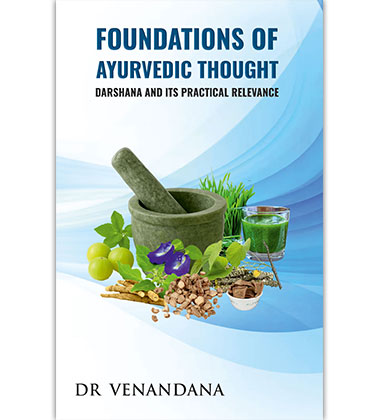
Ayurveda, the “Science of Life,” is one of humanity’s oldest and most enduring healthcare systems. Its foundation rests not only on the principles of physiology, pathology, and therapeutics, but equally on the philosophical traditions (Darshana’s) that shaped the Indian worldview. Without an understanding of these philosophical roots, the true essence of Ayurveda remains incomplete.
The Darshana’s—Nyāya, Vaiśeṣika, Sāṅkhya, Yoga, Mīmāṃsā, Vedānta, Bauddha, and Jaina—are not abstract theories preserved only in ancient texts. They are living traditions, dynamic systems of thought that continue to influence how health, disease, and healing are understood. Each offers a unique lens through which Ayurveda interprets the body, mind, and spirit. Nyāya sharpens logical reasoning in diagnosis; Vaiśeṣika explains structural and functional categories; Sāṅkhya reveals the psychosomatic link between mind and matter; Yoga provides tools for mental and physical discipline; Mīmāṃsā emphasizes ethical living; Vedānta inspires spiritual counselling; and Bauddha–Jaina thought brings mindfulness and compassion into practice.
This book, Foundations of Ayurvedic Thought: Darshana and Its Practical Relevance, is an attempt to reconnect philosophical theory with clinical application. It is written with the conviction that philosophy is not a distant background to medicine, but an integral part of practice—guiding the Vaidya in diagnosis, treatment, prevention, and counselling.
In an era where modern medicine seeks holistic models of health, the insights of Darshana have global relevance. Mindfulness-based interventions, yoga therapy, ethical healthcare, and integrative approaches are now being validated by research worldwide—yet these concepts were already articulated in the classical Indian philosophical systems that underpin Ayurveda.
This book is intended for students, practitioners, and scholars who wish to deepen their understanding of Ayurveda’s philosophical foundations and their contemporary application. It aims to:
I am deeply grateful to my teachers, mentors, and colleagues who inspired this work, and to my students whose questions continuously rekindled my curiosity. This book is dedicated to all seekers of knowledge who recognize that the art of healing is not only a science, but also a philosophy, a discipline, and a way of life.
It is my hope that this work will encourage readers to view the Vaidya not merely as a physician, but as a healer, counsellor, and philosopher, embodying the true spirit of Ayurveda.





